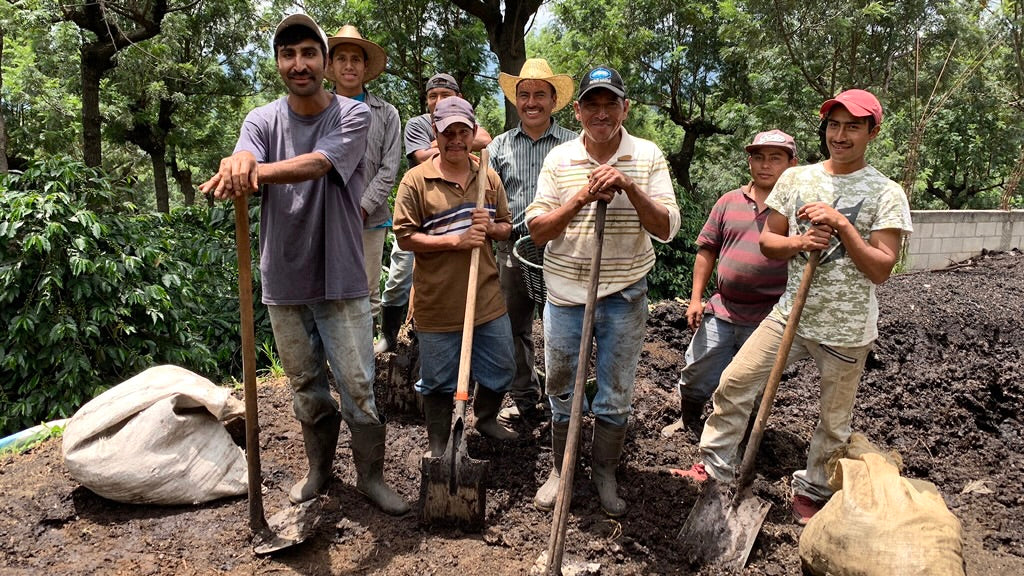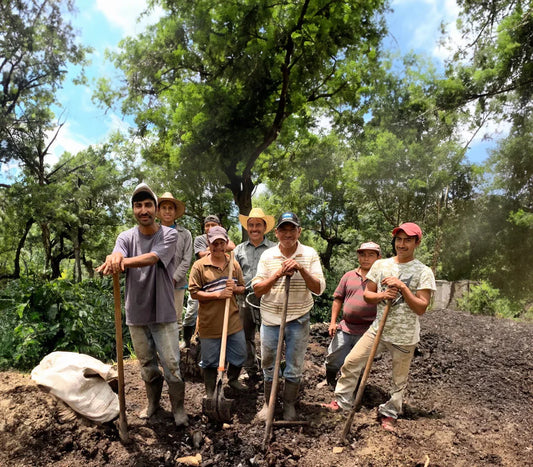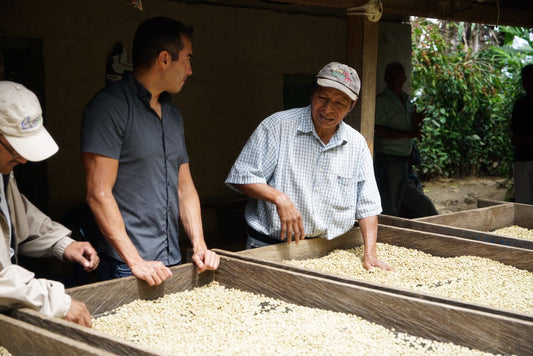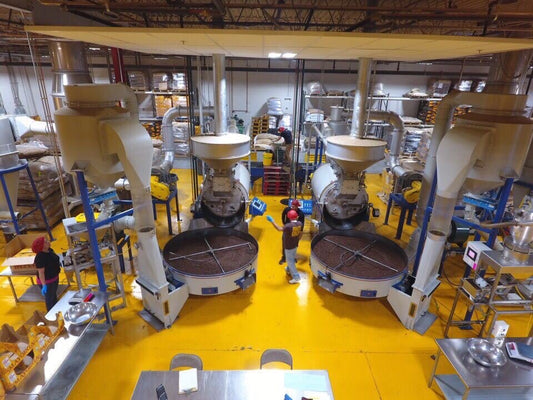
Cooperative Farming: Strength in Numbers
Good friends are an invaluable commodity when size isn't on your side.
Many small Latin American coffee farmers, often lacking the resources or power to make meaningful changes to economically oppressive systems, rely on 'good friends' or cooperative farming to give them a fighting chance.
Jump to:
What is Cooperative Farming?
Simply put, cooperative or co-op farming means shared ownership. It's a deep-rooted practice dating back over 200 years. Like many people who choose to join cooperatives today, the pioneers of the cooperative movement sought long-term stability, community, and economic fairness.

There is little room for collaborating with competitors in much of contemporary business.
But on a small farm, collaboration is necessary for survival. Neighboring farmers lean on each other for support when disasters inevitably strike and to carry out ordinary tasks like sharing labor in harvest time. When a producer chooses to join a co-op, they combine capital, influence and resources in exchange for stability, community and a fairer economic playing field.
The coffee industry is rife with economic inequity and not everyone plays fair. Small coffee farmers struggle to keep up with the industrial giants that monopolize the supply chain. Largely unchecked, commercial farms, plantations, and estates suffocate small coffee growers through predatory lending and monopolization of resources, among other manipulative tactics.

How Do Coffee Cooperatives Work?
Farming cooperatives provide long-term stability in an industry notorious for volatility and abuses. In an effort to economically exploit small farmers, large coffee mills and exporters isolate producers by restricting available resources. With very little means, the small producer is happy that someone is willing to buy their coffee–without truly understanding the inherent injustice in the existing supply chain and pricing structures.
Cooperatives protect the long-term sustainability of small growers from the unscrupulous actions of industrial giants through the equal distribution of profits to members. With the added income from the cooperative’s scale, members can vote to invest excess revenue towards projects that will benefit the long-term health of all cooperative members. In essence, the local community.
The democratic nature of the cooperative model allows members to find community and shared ideals. In addition to the obvious economic benefits, co-op members enjoy the fulfillment that comes with sustaining a business that matches their values and keeps them connected to their community.

An Easy Way to Support Cooperative Farming
Cooperative farming transforms the lives of small growers. Cooperatives increase engagement within the community, which leads to best practices in growing and processing coffee. They give small producers the ability to participate in the marketing of their product at a higher level, which in turn allows them to better understand the economic realities of the supply chain. And they provide better resources for financing, which saves them from relying on predatory lending from multinational traders.
Supporting cooperative coffee growers is easy. Every comforting cup of Mayorga coffee you drink sustains the lives and communities of coffee growers all over Latin America.
And with the launch of our new compostable single serve pods and capsules, brewing a cup of your favorite Mayorga blend has never been simpler.
Want to do more? Share this article with a friend and tell them why they should buy cooperative grown!


